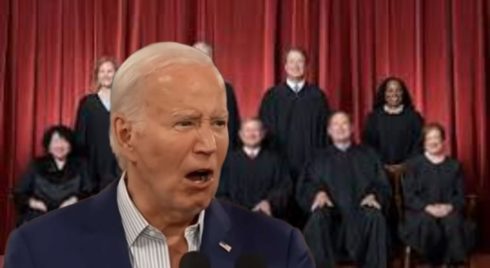President Joe Biden has sharply criticized the recent United States Supreme Court ruling on presidential immunity, labeling it a “dangerous precedent” that threatens the rule of law. In a strongly worded statement, Biden warned that the decision effectively removes constraints on presidential power, setting a concerning standard for future administrations.
Biden’s comments came in response to the Supreme Court’s ruling that former President Donald Trump could not be prosecuted for actions within his constitutional powers as president, though he could still face charges for private acts. This landmark decision marks the first formal recognition of any form of presidential immunity from prosecution, raising significant concerns about the accountability of the highest office in the land.
Call to Action: Rejecting Trump in November
In an address from the White House, President Biden urged the American public to reject Donald Trump in the upcoming November election. He emphasized that the Supreme Court’s decision makes it highly unlikely that Trump will face trial for his efforts to overturn the 2020 election results before the November 5 presidential election.
“This nation was founded on the principle that there are no kings in America. Each of us is equal before the law. No one is above the law. Not even the president of the United States,” Biden asserted. He warned that the court’s ruling allows for virtually no limits on presidential actions, posing a severe threat to democratic principles. “The power of the office will no longer be constrained by the law,” Biden said, highlighting the potential for unchecked presidential authority.
Biden Echoes Justice Sotomayor’s Dissent
President Biden expressed his agreement with liberal Justice Sonia Sotomayor, who dissented in the 6-3 ruling by the conservative-leaning court. Sotomayor voiced her concerns about the implications for US democracy, a sentiment Biden echoed in his remarks. “The American people will have to do what the court should have been willing to do, but will not. The American people will render judgment on Donald Trump’s tenure,” he stated.
Biden’s remarks drew immediate criticism from House Speaker Mike Johnson, a Republican, who labeled them “despicable” and “dangerous,” accusing the president of undermining the Supreme Court. Despite the backlash, Biden remains steadfast in his condemnation of Trump’s actions and the court’s decision, framing it as a pivotal moment for American democracy. “I dissent. May God bless you all. May God help preserve our democracy,” Joe concluded, calling on Americans to uphold democratic values in the face of this controversial ruling.
President Biden’s Response to the Ruling
President Joe Biden addressed the nation from the White House, expressing strong disapproval of the Supreme Court’s decision. Speaking for less than five minutes, Joe emphasized that the ruling contradicts the foundational principles of American democracy, which celebrate equality before the law. His remarks came just days before the Fourth of July, a national holiday commemorating the country’s independence and the ideals upon which it was founded.
“This nation was founded on the principle that there are no kings in America,” Joe declared. “Each of us is equal before the law. No one — no one — is above the law, not even the president of the United States.” Biden’s comments reflect a broader concern that the ruling undermines the accountability mechanisms designed to prevent presidential overreach.
Implications for Trump’s Legal Battles
The Supreme Court’s decision has significant implications for the ongoing criminal case against former President Donald Trump. Trump faces allegations of conspiring to illegally overturn the 2020 election results. President Biden pointed out that the ruling likely means a jury will not adjudicate Trump’s case before the upcoming November election, describing this outcome as a “disservice to the American people.”
Joe’s remarks highlight the tension between legal principles and political realities. The decision raises questions about the balance between protecting presidential prerogatives and ensuring that no individual, regardless of their office, is immune from legal accountability. As the nation grapples with this ruling, its long-term impact on the integrity of U.S. democracy remains to be seen.














